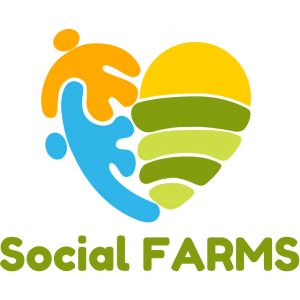Social agriculture is in such a way linked to educational experiences already existing within the multifunctional approach to rural development and can provide social and employment benefits in the agriculture, education, health and social sectors.
This project intends to bridge competences within training programs simultaneously offering opportunities to farmers and those who can become partners of the evolution of social agriculture aiming at a real service for schools, families social care and health services.
Starting from a“learning-by-doing”methodology, typical of the traditional farmers’ heritage, the project will contribute to elaborate programmes based on soft skills, addressed to customers with special needs, and hard skills, such as “gardening and horticulture”, “management of farm animals”, with help of specially trained courtyard animals, “traditional food making”, like cheese, bread, jams etc. made by traditional recipes, “use of ecologic materials for farm buildings”, like wood, clay and straw, “knowledge, cultivation and propagation of herbs for health and food purpose”, etc.
All of these training materials, and some more or different, depending of a State-of-the-Art and Training Needs Analysis, performed by the partners in the preparatory phase, will be elaborated, discussed, shared, adopted, tested and evaluated by the partners.
The teaching materials, implemented with case studies, keywords for glossary and mulltiple choice questions, will be available for combined training, on the spot and online for elearning, based on the “social agriculture virtual kit” that will be constituted, like an online suitcase, of teaching materials for managing social agriculture and care farms.
The training course will be targeted to different users and level of difficulty and competence, “care farm tutor”, EQFLevel3 and 4, “care farm manager” EQFLevel4 and 5 and “care farm social/health educator”, EQFLevel5 and 6.
The online e-learning platform will be designed and released as user friendly, interactive and available for OER free of charge.
The project thus plans to create a dual training opportunity both for practical and virtual fruition, in this way making possible to plan one’s training course via Internet according to the amount of time available for users and implementing the theoretical course with a practical experience at a social farm among those listed as case studies.
At the same time, participants can follow interactive online programmes with the opportunity to interact with teachers and other students in the selected course, by social networks, blogs and forums, moderated by the Social-FARMS portal owner.”
